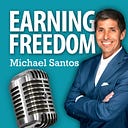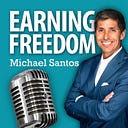Success After Prison, Episode 3
- (In Episode 3, I continue a series of articles showing how my adjustment through 26 years of imprisonment contributed to my returning to society successfully. You may receive free ebook by visiting Success After Prison)
Sentenced to 45-Years:
My judge chose not to impose a life sentence. Instead, he sentenced me to 45 years. I was sentenced under a different set of laws than the sentencing laws that exist today. Under the laws that existed for crimes committed in 1987, I could earn 19-years worth of good-time credits. For readers who don’t know about good time, they’re rewards for avoiding disciplinary infractions. A prisoner didn’t need to do anything particularly good to earn good time. He simply needed to avoid being convicted of violating disciplinary infractions. So long as I didn’t lose any good time during my journey through prison, I would satisfy my sentence after 26 years of imprisonment.
Since I was 23-years-old when authorities took me into custody, I didn’t quite know how to process the concept of serving 26 years. Thankfully, by reading Socrates I had a vision and a strategy. By thinking about my avatars, I could craft a strategy that would allow me emerge successfully. I would focus on that three-pronged goal of working to educate myself, to contribute to society, and to building a support network.
I began serving my sentence in the United States Penitentiary in Atlanta, thousands of miles away from where I grew up, in Seattle. While locked inside those high walls, I embarked upon the first prong of my plan. Although I’d been a lousy student in high school, I was determined to become a good student in prison. Why? Because I believed that if I could earn a university degree while incarcerated, people in society would respect me. And if more people respected me, I believed that more opportunities would open.
Since I didn’t have any financial resources, I began writing letters to universities. I wrote to hundreds of universities, not knowing whether anyone would read the letters. Still, I knew that if I didn’t write letters, I wouldn’t stand a chance of connecting with my avatars who lived on the other side of prison walls. Each letter expressed the same message:
I made bad decisions as a young man. As a consequence of those decisions, I served a lengthy term in prison. I wrote that I wanted to educate myself while inside and I asked for help. In time, I found universities to work with me. Those relationships I opened from inside prison walls resulted in my earning an undergraduate in 1992, and a master’s degree in 1995.
After Hofstra University awarded my master’s degree, I began studying toward a Ph.D. at the University of Connecticut. Then a warden determined that my education had gone far enough. He put a stop to my formal studies by prohibiting the prison’s mailroom from receiving books that the University of Connecticut’s library would send for my coursework. Fortunately, by then I had eight years of imprisonment behind me. That experience conditioned me to cope well with obstacles.
When my formal studies came to an end, I shifted focus. As I wrote in Earning Freedom and other books, I went through a phase where the stock market consumed all of my time. By studying how investors valued stocks I learned about business. I became fluent with “technical analysis,” learning how to assess a stock’s value in accordance with various trading patterns. By reading financial newspapers and magazines and books, I also learned about “fundamental analysis,” learning the importance of more objective metrics like growth rates, profit margins, return on equity, and other factors.
Studying the stock market, I knew, would be a poor substitute for real business experience. But serving a lengthy term in prison required that I look for “unorthodox” ways to prepare myself for success upon release. And the more I could learn about business, the more I would arm myself for the challenges I anticipated upon release.
What lessons could you learn with the resources you have around you? In the pages and chapters that follow, you’ll see how asking questions inspired me to learn as much as possible. It’s crucial that we use resources around us to prepare for success in our future. Without a deliberate plan, however, we sometimes fail to see the resources. Later, I’ll show the strategy that worked so well for me.
As we approached the turn of the century I crossed over into the second half of my sentence. I had 13 years of prison behind me and 13 years of prison ahead of me. I shifted attention to writing, wanting to advance purposely toward the other two prongs of my adjustment strategy. First I wrote articles and I submitted them for publication. Then I began writing chapters for academic books. In time, one of my mentors offered to introduce me to his publisher. Professor George Cole, from the University of Connecticut, presided over my Ph.D. program and he authored the leading textbook on corrections. George suggested that I write a book for an academic audience that his publisher could package as a supplemental text for university students who were studying corrections. His suggestion led to my first book, About Prison.
Key Point:
I hope you will connect the dots here. Early in the book I wrote how I contemplated my avatars. What was that? While still in the county jail, before I’d even been sentenced, I thought about the people I would want to influence in my future. I didn’t know George Cole then, and George Cole didn’t know me. He was a distinguished author and he led the criminal justice department at the University of Connecticut. But while I was locked in the Pierce County Jail, masterminds like Socrates inspired me. They taught me to ask “Socratic questions” about what steps I could take during my imprisonment to prepare for success. Those questions led to my three-part adjustment strategy:
- My avatars would expect me to educate myself.
- My avatars would expect me to contribute to society.
- My avatars would expect me to build a support network.
By sticking to that three-pronged strategy, I could open more opportunities. Since I executed that plan, I earned university degrees. Since I earned university degrees, I found it easier to open opportunities to publish articles. Since I published articles, I found mentors like George Cole. He didn’t judge me for the bad decisions that brought me to prison. Instead, he looked upon me as someone who could add value to society. George then introduced me to his publisher. She issued a contract to publish About Prison. When About Prison came out, thousands of people became aware of my work. My support network grew. Since the prison system didn’t allow me to “run a business,” I assigned royalties from About Prison to family members. Those resources opened opportunities I could leverage and create more opportunities.
The cycle of success began for me while I served time inside of a jail cell, before I was even sentenced to prison. When will your cycle of success begin? It will begin as soon as you start living by this same model:
- Visualize success by contemplating your avatars.
- Create a plan that will persuade your avatars to invest time, energy, and resources in your development.
- Execute your plan with every thought that goes through your mind, with every word that comes out of your mouth, and with every decision you make while serving your sentence.
After writing my first book, I reached to another mentor of mine. Dr. Marilyn McShane. Marilyn taught criminal justice courses at several universities and she also advised publishing companies. She opened an opportunity for me to publish my second book, Profiles From Prison, through Greenwood/Praeger, another well-respected academic publishing house.
With two publishing credentials behind me, I aspired to reach a wider audience. Prison populations had been growing and I thought it would be helpful to write a general nonfiction book about the prison system. I pulled books from prison library shelves and researched how to go about publishing a mainstream book.
- The first step would be to write a book proposal.
- Then I would need to write sample chapters.
- Next, I would need to write a cover letter and begin sending self-addressed-stamped envelopes to literary agents.

